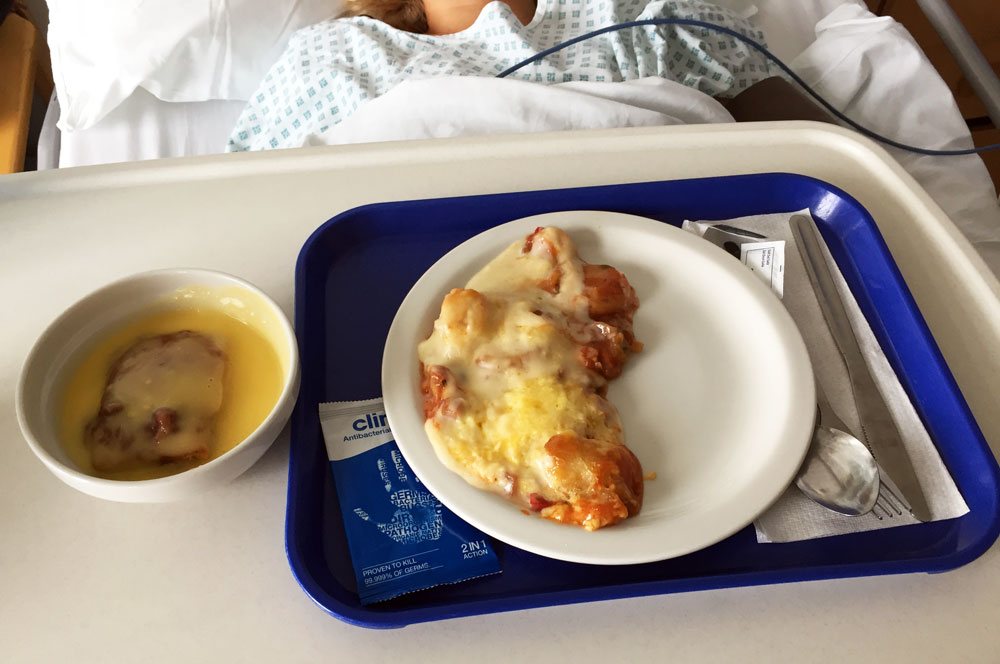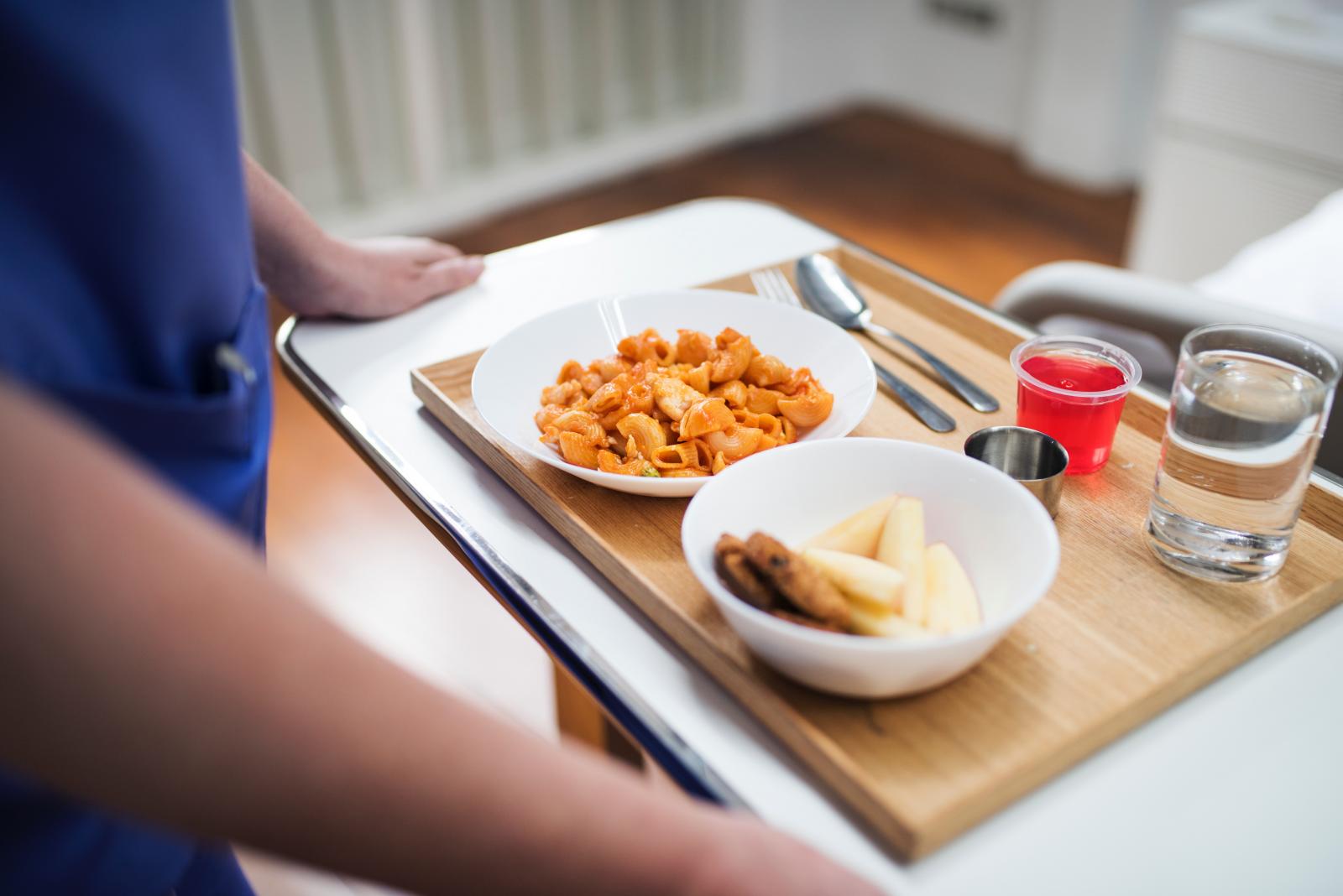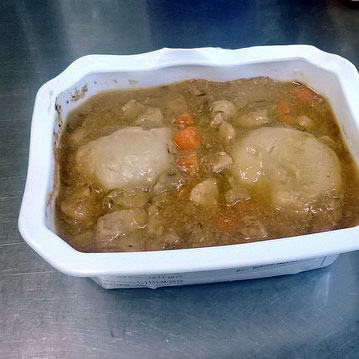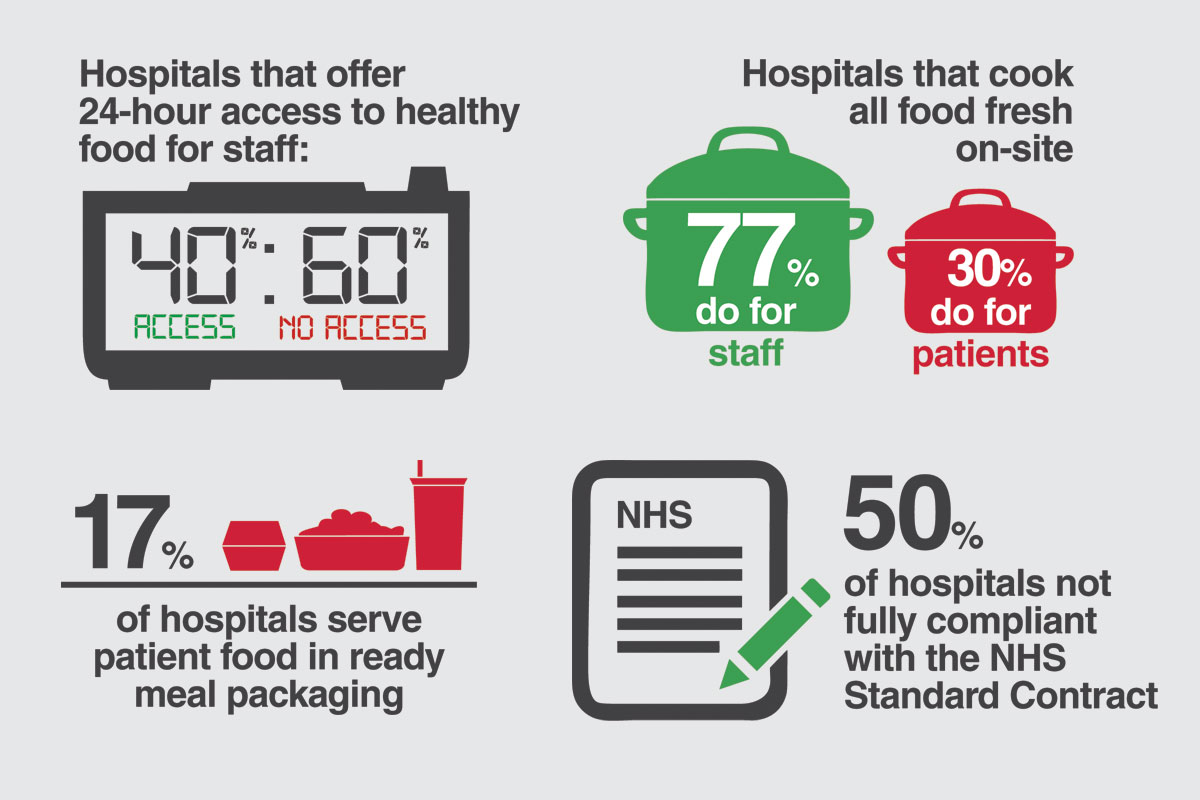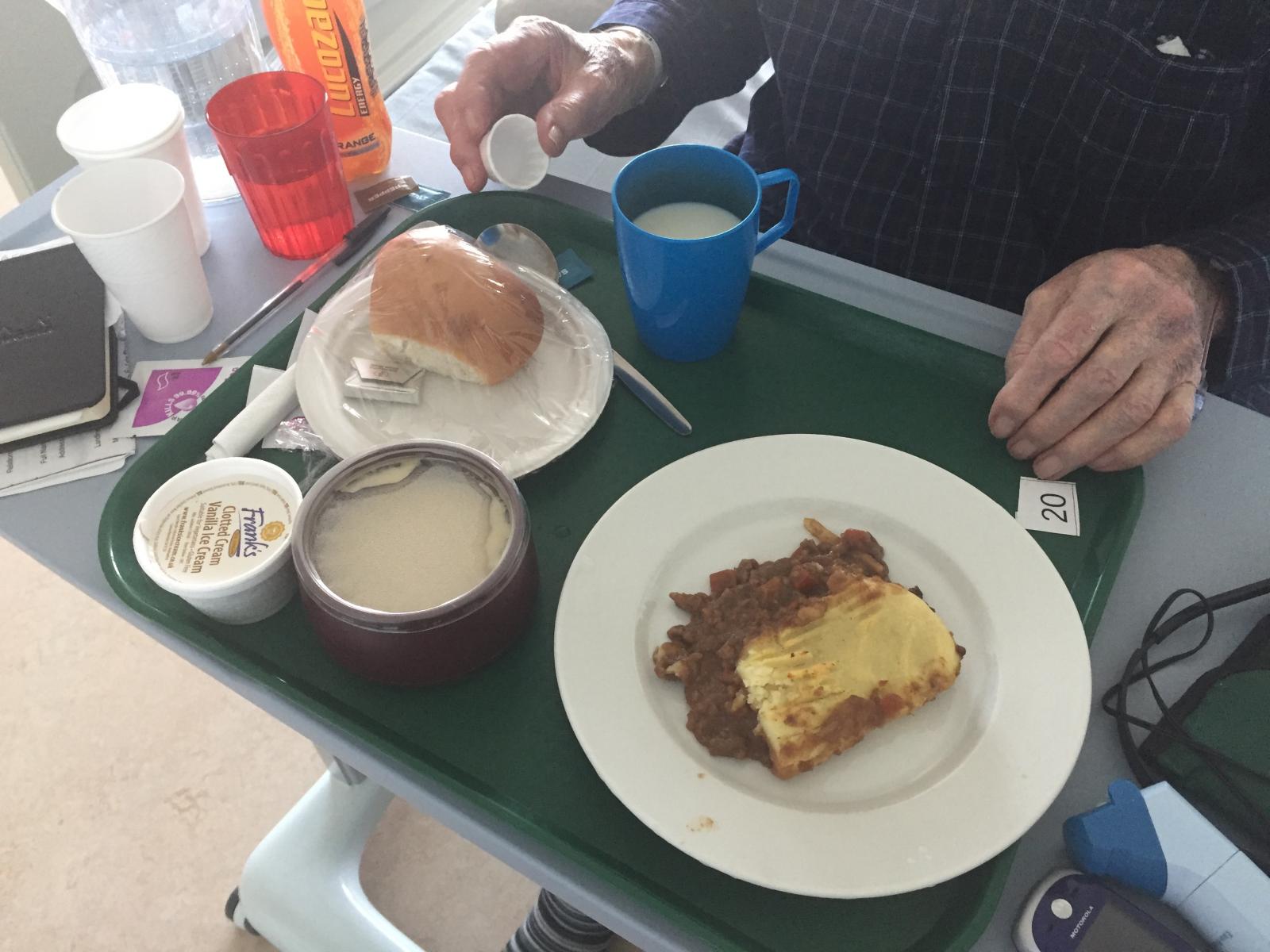Shocking welfare standards for animals reared for hospital food
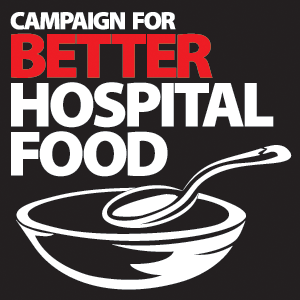 Animal welfare standard of hospital food is ‘post code lottery’
Animal welfare standard of hospital food is ‘post code lottery’
A survey [1] published today by the RSPCA and the Campaign for Better Hospital Food reveals that most eggs, chicken and pork served in hospitals in England are produced from animals reared in only basic welfare conditions.
The survey of every hospital Trust in England found that approximately 7 out of 10 eggs served by English hospitals are from hens kept in cages, and approximately 80% of chicken and pork is from animals reared in conditions that do not meet RSPCA welfare standards. It also found that there is a big regional variation in the animal welfare standard of hospital food in England [2].
The RSPCA and the Campaign for Better Hospital Food are calling on the Westminster government to introduce mandatory minimum standards for hospital food in England, to ensure that all eggs are cage-free and all chicken and pork meets RSPCA welfare standards [3].
Key national findings of the survey:
- 7 out of 10 (71%) eggs served by hospitals are laid by caged hens.
- 86% of chicken and 80% of pork served by hospitals is not from farms inspected to meet RSPCA welfare standards.
- 8 out of 10 (81%) hospitals don’t serve ANY chicken which meets RSPCA welfare standards, more than 7 out of 10 (75%) don’t serve ANY pork which meets RSPCA welfare standards and more than half (56%) don’t serve ANY cage-free eggs.
The survey results show that the animal welfare standard of hospital food is lower than the standards demanded by shoppers in British supermarkets. With animal welfare becoming an increasingly important consideration for consumers, more than half of eggs produced in the UK are now cage-free [4], and Sainsbury’s, Waitrose, M&S and the Co-operative have banned cage eggs altogether [5].
Freedom Food certification ensures that food is produced from animals on farms which are inspected to meet strict RSPCA welfare standards, covering all aspects of their lives [6].
Despite pressure on hospital budgets, supermarket figures show that Freedom Food labelled food does not always cost more. For example, Freedom Food barn eggs from Sainsbury's cost the same as cage eggs from Tesco and ASDA and Sainsbury's Freedom Food chicken thighs and drumsticks are £1.22p per kilogram cheaper than Sainsbury's chicken and thighs which meet Farm Assured Standards[7].
When surveyed [8] 7 out of 10 (69%) people agreed that the welfare of animals bred for meat, eggs and dairy should not be compromised in order to produce cheap hospital food.
David Bowles, Head of Public Affairs at the RSPCA, said: "It is strange that just when you are at your weakest, you are served food that may not be to your taste and can be from animals kept under intensive conditions. Even hospitals serving food made from free range eggs in their coffee shops and cafeterias are still delivering food made with cage eggs to patients. We support the idea of having standards for hospital food".
Alex Jackson, Co-ordinator of the Campaign for Better Hospital Food, said: “It’s disgraceful for the taxpayer to pay for hospital food which causes misery to animals. The government must introduce mandatory higher animal welfare standards for all hospital food in England to improve its quality and taste, and guarantee that it is produced from animals living happy lives”.
James Varghese, Catering Manager at Royal Brompton Hospital [9] in London, said: “The Royal Brompton uses approximately 75,000 free range eggs per year. The price is very competitive and well within our budget constraints. All our sausages and cooked ham joints are from farms in Essex which operate to very high standards of animal welfare. Every NHS trust spends hard-earned taxpayers’ money and we want to make sure we are giving patients, staff and relatives food that is both nutritious and which meets high standards of animal welfare”.
- Ends -
For more information please contact Alex Jackson on Tel: 0203 5596 777 and M: 07734 902909 / Email: alex@sustainweb.org, or Diane Roberts on 0300 123 0194 / Email: Diane.Roberts@rspca.org.uk.
Notes to editor
[1] In July and August 2012, the Campaign for Better Hospital Food submitted a Freedom of Information request to every NHS hospital Trust in England which asked:
1. Approximately what percentage of eggs bought by hospitals in your Trust each year are cage-free (i.e. what percentage of eggs are either barn, free range or organic eggs)?
2. Approximately what percentage of chicken bought by hospitals in your Trust each year meets RSPCA welfare standards (i.e. is certified to meet Freedom Food standards)?
3. Approximately what percentage of pork bought by hospitals in your Trust each year meets RSPCA welfare standards (i.e. certified to meet Freedom Food standards)?
[2] Key regional findings of survey:
Eggs
|
Region in England |
Eggs served which are from hens kept in cages |
Ranking (1=best, 8=worst) |
|
London |
5 out of 10 (48%) |
1 |
|
South West |
5 out of 10 (50%) |
2 |
|
North East |
7 out of 10 (67%) |
3 |
|
South East |
7 out of 10 (70%) |
4 |
|
Yorkshire and Humber |
8 out of 10 (77%) |
5 |
|
Midlands |
8 out of 10 (77%) |
6 |
|
North West |
8 out of 10 (80%) |
7 |
|
East of England |
9 out of 10 (91%) |
8 |
Chicken
|
Region in England |
% chicken meeting RSPCA welfare standards |
Ranking (1=best, 8=worst) |
|
London |
23% |
1 |
|
North West |
21% |
2 |
|
Yorkshire and Humber |
18% |
3 |
|
South East |
15% |
4 |
|
North East |
13% |
5 |
|
East of England |
13% |
6 |
|
Midlands |
12% |
7 |
|
South West |
11% |
8 |
Pork
|
Region in England |
% pork meeting RSPCA welfare standards |
Ranking (1=best, 8=worst) |
|
East of England |
38% |
1 |
|
North West |
28% |
2 |
|
South West |
23% |
3 |
|
London |
23% |
4 |
|
South East |
18% |
5 |
|
Yorkshire and Humber |
18% |
6 |
|
North East |
13% |
7 |
|
Midlands |
8% |
8 |
Please find all responses received here.
[3] For more information please visit www.hospitalfood.org.uk and https://www.sustainweb.org/hospitalfood/wardoffcruelty/.
[4] Government statistics show that 48% of all eggs produced in the UK are laid by caged hens: http://www.defra.gov.uk/statistics/files/defra-stats-foodfarm-food-eggs-statsnotice-120802.pdf.
[5] A full list of organisations which have been given a ‘Good Egg’ award by Compassion In World Farming for going ‘cage-free’ is available at: http://www.ciwf.org.uk/good_egg_awards/english/winners/default.aspx.
[6] RSPCA welfare standards exclude some of the worst farming practices allowed by UK law, including the use of so-called ‘enriched’ battery cages for egg-laying hens which can provide each hen less 'usable space' than an A4 sheet of paper. They also prevent producers from rearing chickens which are genetically selected to grow quickly, and are forced to live in crowded and dark conditions. To protect pigs, the standards prohibit farmers from keeping pigs on slatted or concrete floors, and from putting pregnant pigs in restrictive farrowing crates both before and after they give birth.
For more information about RSPCA Freedom Food please go to. www.freedomfood.co.uk
[7] Data collected by the Campaign for Better Hospital Food from http://www.mysupermarket.co.uk in November 2012.
[8] Study conducted in Great Britain via OnLineBus, an internet omnibus survey. A weighted sample of 1007 adults aged 16-64 was interviewed in October 2012.
[9] For more information about catering at Royal Brompton Hospital please visit http://www.rbht.nhs.uk/patients/brompton/food/.
Published Thursday 15 November 2012
Better Hospital Food: The campaign represents a coalition of organisations calling on the Westminster government to introduce mandatory nutritional, environmental and ethical standards for food served to patients in NHS hospitals in England.
